Mapping Change + Eurozone Inflation + Migration Crisis + Berlin's Science Week + Good Bye Lenin + Bosnia’s Fragile Shift + Merz's call for unity
Which upcoming Berlin-based conference in October 2025 will focus on the intersection of climate change, security, and diplomacy?
Berlin Climate & Security Conference.
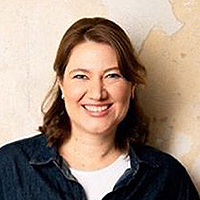 Dear Readers,
Dear Readers,
Welcome to the Diplomacy Berlin Newsletter.
Our focus this week is on bridging communication, diplomacy, and Europe’s evolving political and economic landscape. We are delighted to feature an exclusive conversation with Clemens Glade, a communication consultant and organizational developer whose work lies at the intersection of storytelling, dialogue, and transformation. Drawing from years of experience advising destinations, embassies, and organizations, Glaede explores how imagery and narrative can help teams rediscover themselves, navigate uncertainty, and foster genuine connection across cultures.
Alongside this, we examine key developments shaping Europe and beyond: Eurozone inflation has reached a five-month high, prompting expectations that the European Central Bank will remain cautious in its policy stance. We also spotlight Berlin Science Week, which continues to foster dialogue between research, innovation, and policy. In our Learn section, we turn to Bosnia’s fragile shift and discuss why Germany’s engagement is pivotal at this juncture. Meanwhile, within Germany, political discourse intensifies as Merz calls for unity but pairs it with austerity, raising questions about the balance between fiscal restraint and social cohesion.
Our team also attended several noteworthy events this week, including the Mexican Embassy’s 25th Anniversary Concert, the Ambassadors’ Guided Tour at the Smart Country Convention, and the Wallonie-Bruxelles Celebration at the Belgian Embassy—each offering unique insights into the intersection of diplomacy, culture, and innovation.
We extend our warm congratulations to the following nations celebrating their national days this week: Uganda (October 9), Fiji (October 10), Spain (October 12), and Equatorial Guinea (October 12) — honoring their heritage, independence, and enduring contributions to the global community.
As always, thank you for joining us. If you would like to contribute articles, event coverage, or press releases for upcoming editions, please reach out at editorial@diplomacy.berlin.
With best regards,
Sigrid Arteaga
Mapping Change, Sparking Dialogue: Clemens Glade on Landscapes, Diplomacy, and the Power of Informal Encounters
Clemens Glade has spent years moving between worlds, both geographical and cultural, as well as those of communication. From advising destinations and shaping organizational narratives to bringing people together in embassies, he works in the spaces where cultures meet and identities are negotiated. Today, as a communication consultant and organizational developer, he channels this experience into helping organizations rediscover themselves, creating dialogue, resilience, and clarity where it’s needed most.
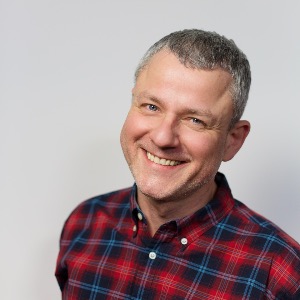
In your consulting and workshops, you often describe organizations as living landscapes with mountains of values, rivers of communication, and zones of fog. How does this cartographic perspective help teams rediscover themselves and navigate change?
We think in images; they’re how we make sense of the world. Storytelling builds on that ability. The moment we began to tell one another stories to translate the vast into something our minds could hold, the success story of humanity began. Everything we call culture is, at its core, visual and symbolic.
When I describe organizations as landscapes, I invite people to see themselves within their own terrain. Values become mountains that give orientation; communication turns into rivers that connect; and uncertainty becomes a fog that can be crossed rather than feared.
In times of transformation, when change feels unsettling, these inner maps provide scale and perspective. Challenges seem less intimidating when we relate them to something familiar. A mountain may look daunting from below, yet as with any climb, what begins as impossible soon becomes a test of endurance and ends in a moment of clarity and quiet triumph.
Such imagery helps teams shift from fear to curiosity, from resistance to participation. Because once you know your landscape, even the steepest ascent becomes part of a meaningful journey.
Embassy visits and international encounters are a recurring part of your journey. What is it about stepping into a diplomatic space that sparks transformation both for organizations and for the individuals within them?
What sets the extraordinary apart from the everyday is our attitude toward it. These are the rare moments when we become fully present, focused, mindful, and receptive. Like entering a sacred space or an opera house, the very act of attuning ourselves changes something within us: we cross a threshold and open up to what is about to unfold.
Every encounter holds the potential to transform us if we allow ourselves to be truly present. Every interaction with another person can become an intervention when met with openness, awareness, and resonance. I believe in the transformative power of genuine conversations and meaningful encounters in those moments when something begins to move without being forced. In the words of Martin Buber: A person becomes an “I” through a “Thou.”
The same applies to organizations. They, too, are living systems made up of relationships and dialogues. When awareness and authenticity enter these spaces, when people truly listen and respond to one another, the entire organization begins to shift. Culture changes not through mandates or strategies alone, but through the quality of presence in everyday interactions. Transformation starts in conversation.
Your volunteer work with the German Journalists’ Association creates deliberately informal spaces where journalists and diplomats meet. What have you learned from these encounters about the power of dialogue, and why is informality sometimes more productive than formal settings?
Through nearly fifteen years of organizing embassy visits with the German Journalists’ Association, I have seen how much power lies in dialogue when the setting is deliberately informal. In such spaces, curiosity and openness prevail: embassies can present their perspectives freely, and journalists gain authentic insights without the constraints of protocol.
What I have learned is that informality often lowers barriers and builds trust more quickly than formal settings. Conversations flow, connections emerge, and sometimes the most valuable outcomes, whether mutual understanding or the seed of a future interview, arise precisely because the atmosphere is off the record.
To know more, visit clemensgla.de
Eurozone inflation hits five-month high; ECB expected to remain cautious
In September, inflation across the eurozone rose to 2.2 %, the highest level in five months, pushed by stronger price increases in services and energy goods. Core inflation (which strips out volatile items like food and energy) held steady at 2.3 %, signaling that underlying price pressures remain entrenched. The rise strengthens the case for the European Central Bank to maintain its current interest rate stance rather than moving prematurely.
Germany is especially exposed: as a major exporter and a country with close ties to eurozone monetary policy, rising inflation affects its competitiveness, consumer prices, and the calculus for German fiscal and industrial policies. Berlin will be watching EU monetary moves and inflation data closely for cues on how to balance investment, wage growth, and export pressures.
Read the full story on Euronews.
Art of the Solution: Berlin's New Formula for Science and Technology
Forget the sterile conference rooms! This year, Berlin Science Week (Nov. 1-10) is celebrating its 10th anniversary with a radically new formula for tackling global challenges: The strategic fusion of art and technology. In our featured article, “The Art of the Solution: Berlin’s New Formula for Science and Diplomacy,” we dive into how the festival’s FORUM hub at Holzmarkt 25 is creating a „living laboratory“ for public engagement. From AI-driven art that restores coral reefs to torchlight tours transforming climate data into visceral history, Berlin is proving that the most effective solutions are born where creativity meets code. This immersive, culture-forward approach is a powerful masterclass in „soft power,“ transforming complex data into a compelling, accessible public narrative.
Read the full story on Diplomacy.Berlin to see how Germany is pioneering a smarter, more sophisticated form of science diplomacy built on collaboration and shared creativity.
Europe’s migration crisis: A Decade Later
In Europe’s Migration Crisis a Decade Later (Reuters Podcast), reporter Riham Alkousaa revisits the German town of Altena, reflecting on how the massive migration influx around 2015 reshaped lives, politics, and social trust. She dives into stories of integration success, community backlash, and how migration continues to challenge identities and policies across Europe. Germany, as one of the primary destinations during that wave, remains at the nexus of these debates: it faces growing pressure to balance humanitarian commitment, social cohesion, and political backlash.
Listen to the full episode on Reuters.
Good Bye, Lenin! nostalgia, politics, and reinvention
Wolfgang Becker’s Good Bye, Lenin! (2003) is a German tragicomedy cult classic set around the fall of the Berlin Wall. The story centers on Alex, whose mother, Christiane, a committed socialist, falls into a coma just before the collapse of East Germany. When she wakes up months later, the world she believed in is gone. To protect her from a fatal shock, Alex concocts an elaborate ruse: he rebuilds in their flat the illusion that the GDR still exists, deploying fake news, old-style products, and silent complicity from neighbors. The film weaves political satire, family drama, and the emotional weight of a society in flux. (Good Bye, Lenin! won Best Film at the 2003 European Film Awards, among other honors.)
The film isn’t just a personal tale it reflects Germany’s struggle to reconcile identity, memory, and modernization after reunification. It illustrates how political change is mediated through stories, public belief, and the “illusion machines” of media and symbolic power. For your audience interested in diplomacy, trade, or policy, Good Bye, Lenin! is a reminder that transitions are never just structural; they depend on how people imagine and believe in change.
Watch the full movie on Amazon.de.
- Tiny Caribbean island accuses the Netherlands of failing to protect it from climate change. independent.co.uk
- Opinion: The West Is Lost. nytimes.com
- Why Macron’s meltdown weakens Europe. politico.eu
- Russia Isn’t Done With Syria. foreignaffairs.com
- Youth-led US climate activists widen focus to fight authoritarianism. theguardian.com
Bosnia’s fragile shift: Why Germany must step up now
In Bosnia’s Volatile Transition: Waiting for a More Decisive Germany, analyst Nikola Xaviereff argues that Bosnia is entering a precarious political phase following the decline of Milorad Dodik’s separatist push. DGAP suggests that with U.S. attention receding and EU bandwidth stretched, Germany should take a lead role in redesigning Bosnia’s international supervision, especially ahead of its upcoming elections. The risks are high: renewed ethnic tensions, institutional paralysis, and regression on EU integration. For Germany, this isn’t just Balkan policy, it’s a test of its capacity to lead Europe’s stability agenda, safeguard EU enlargement credibility, and prevent geopolitical vacuums just beyond its borders.
Read the full memo on DGAP’s site.
Merz Calls for Unity - but Offers Austerity
During the 35th-anniversary celebration of German Unity on October 3rd, Chancellor Friedrich Merz called for national unity but delivered a stark warning: Germans must prepare for austerity to secure the country’s future.
Merz argued that Germany is „under attack“ from external and internal threats, requiring a major increase in defense capacity. To finance this, he warned that social promises would be „more difficult to uphold than they have been in the past,“ effectively signaling cuts to the social welfare system. He stressed citizens must „make a little more effort,“ tying economic sacrifice directly to national defense and stability, while also citing „irregular, uncontrolled migration“ as a source of domestic polarization.
To know more about it, visit the European Conservative official website.
SIBB – Berlin-Brandenburg Digital Association is the trade association for the digital economy in the Berlin-Brandenburg region.Since 1992, it has served as a bridge between startups, established tech firms, the public sector, and research institutions fostering collaboration, advocating policy, and building the regional digital ecosystem. It runs an incubator program (10 months, no equity) to help early-stage startups become investment-ready, offers workshops and mentorship, and represents digital business interests in policy debates.To know more about SIBB visit their webiste.
Berlin Foreign Policy Forum 2025 (Körber-Stiftung)
On 25 November 2025, the Berlin Foreign Policy Forum convenes in Berlin under the banner of addressing how internal politics and external diplomacy must cohere in a volatile world. Leading politicians, scholars, diplomats, and journalists from Germany and abroad will debate how Berlin and Europe can reconcile security, economic pressures, and global commitments while navigating polarization, geopolitical fragmentation, and shifting alliances. It’s one of Germany’s premier foreign policy gatherings—worth attending for anyone who wants a front-row seat to how Germany is planning to punch above its weight. Visit Koerber-Stiftung website to know more about the event’s agenda and speakers.
Berlin Climate & Security Conference 2025 (October 23)
The Berlin Climate & Security Conference (BCSC) returns on 23 October 2025 (with side-events from October 21–24), gathering high-level policymakers, security and climate experts, and international organizations to unpack how climate change, resource scarcity, and conflict intersect. The event is hosted at the German Federal Foreign Office and livestreamed globally.Because the climate crisis isn’t just environmental it’s a security challenge this forum offers a rare venue where diplomacy, development, and strategic risk converge. To know the full details of the program visit BCSC’s website.
Mexican Embassy’s 25th anniversary concert
On 30 September 2025, the Embassy of Mexico in Berlin marked the 25th anniversary of its building with a special evening of music. Renowned flutist Horacio Franco and organist Daniel Ortega performed a celebratory concert that filled the embassy’s halls with a mix of classical brilliance and Mexican artistry. More than just a cultural event, the evening highlighted the role embassies play as bridges of diplomacy, where architecture, history, and art come together to strengthen international ties. It was a reminder that behind every diplomatic façade lies not just politics, but a living space for cultural dialogue.
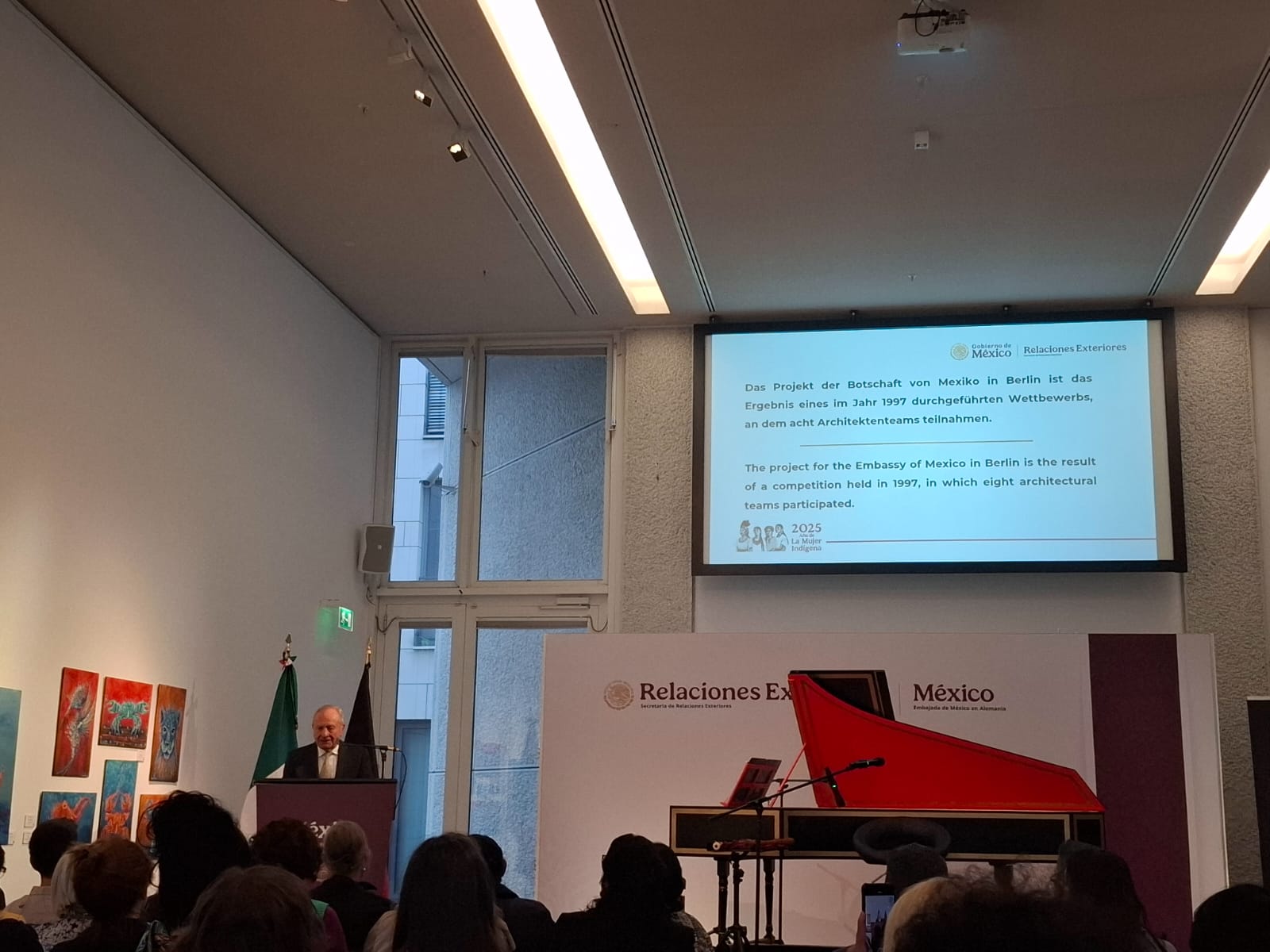
Ambassadors’ Guided Tour at the Smart Country Convention

Last week the Ambassadors’ Guided Tour at the Smart Country Convention took place in Berlin, a showcase of how digital transformation is reshaping governance, business, and innovation. The tour stopped at key booths, including the Federal Ministry for Digital and Transport (Bundesministerium für Digitales und Staatsmodernisierung), Bechtle, Schwarz Digits, and international exhibitors such as Latvia and LMT Innovations. Each stop offered a glimpse into how states and companies are tackling the challenges of modernization from digital public services and smart infrastructure to cross-border innovation ecosystems. The convention underlined Berlin’s role as a hub where technology, diplomacy, and policy intersect, making it an essential meeting point for those shaping the digital future.
Wallonie-Bruxelles Celebration at the Belgian Embassy
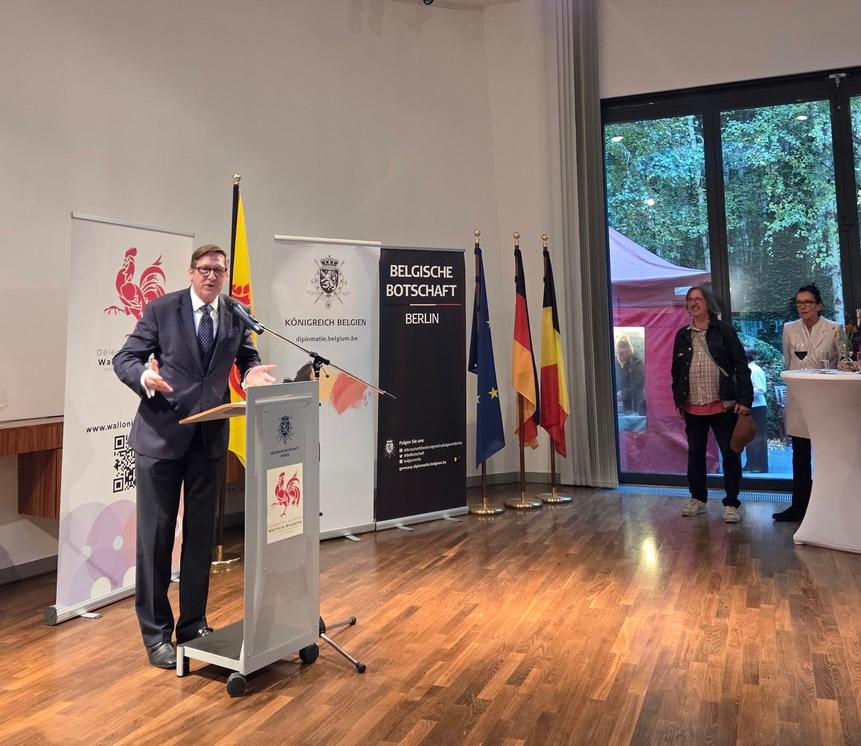
At the Embassy of the Kingdom of Belgium in Berlin, guests gathered to celebrate the official holiday of the Fédération Wallonie-Bruxelles and Wallonia — three days after the historic date of September 27. In his address, Alexander Homann, Head of the Diplomatic Representation of the German-speaking Community, the Fédération Wallonie-Bruxelles, and Wallonia in Berlin, recalled the night of September 26–27, 1830, when Dutch troops were driven out of Brussels and Belgium’s independence began to take shape.
Homann emphasized that the commemoration marks not only the end of an occupation but the birth of a sovereign Belgium — and highlighted the country’s unique federal spirit. Even as Belgium’s regions and communities celebrate their own holidays, they remain united in what he described as a deep sense of Bundestreue — federal loyalty that strengthens rather than divides. The evening reception embodied this spirit of unity and conviviality — with fine Belgian beers, golden fries, and creamy cheeses offering a taste of the country’s signature savoir-vivre. A celebration of dialogue, diversity, and the art of bringing people together — the Belgian way.
German Indian Innovation Summit
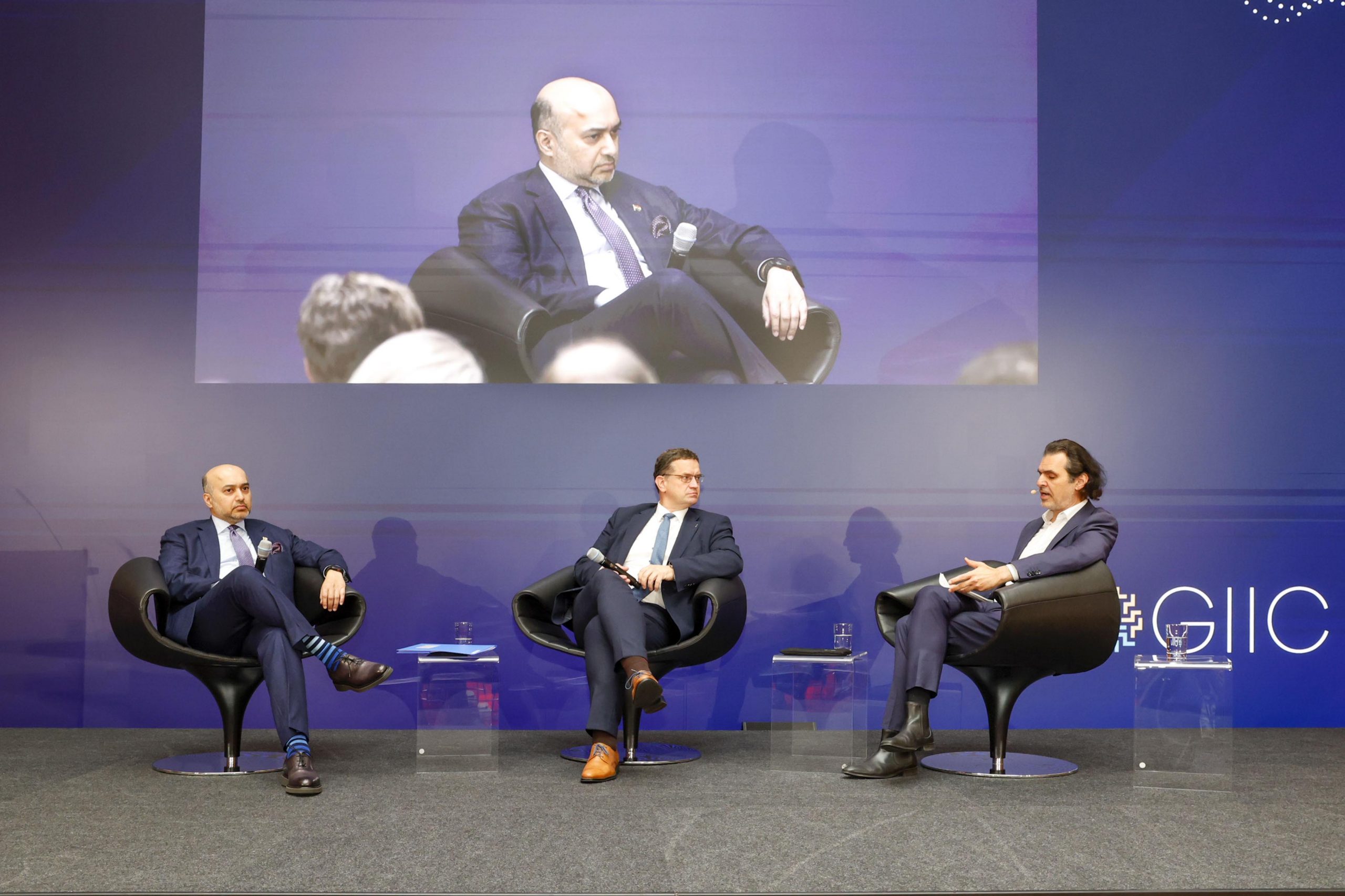
Day one of the GIIC Summit set an ambitious tone under the banner “Germany + India for the World – A 10 Year Mission.” The program opened with a welcome from Indian Ambassador Ajit Gupte and a keynote by Dinesh Khara, former Chairman of the State Bank of India, before moving into a series of lightning talks showcasing cross-continental innovation from drone technologies to deep-space exploration. The morning’s Spotlight Dialogues brought industry leaders like Michael Peter (Siemens Mobility), Dr. Björn Bernhard (Rheinmetall), Axel Denitz (Bosch Business Innovation), and Jörg Müller (Volkswagen India) together with counterparts from India to debate emerging models of innovation and collaboration.
The afternoon shifted gears with a Fusion Showcase blending art, technology, and humanity, followed by action panels across three stages covering everything from health tech and cyber-security to industry 4.0, leadership, and venture capital. Parallel sessions featured the Collective Futures 2045 Workshop and startup pitches, underlining the summit’s emphasis on foresight and fresh solutions. The day closed with the session “How does a joint future 2035 look like?” and wrapped up with Bollywood-themed networking. Day one captured the spirit of the summit: cross-border dialogue, creative experimentation, and a shared commitment to shaping innovation for global impact.
Orania.Berlin is more than a boutique hotel it’s a gastronomic destination in Kreuzberg. At its heart is Orania.Restaurant, famed for its signature X-Berg Duck menu: an inventive five-course duck tasting that uses every part of the bird.Think duck dashi, crispy skin, grilled breast, sorbet, and duck leg fried riceall served with precision and flair. The ambiance is warm, dynamic, and layered live concerts five nights a week, an open show kitchen, cozy lounge corners, and a bar that serves up refined signature cocktails, wine, and solid bar food (like crispy veal schnitzel or spiced tomato soup) with a twist. Visit Orania.Berlin’s website to explore more.
